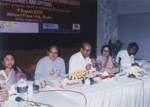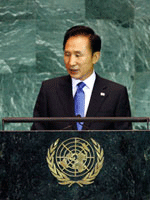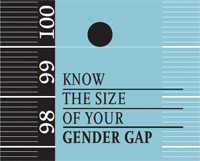Published on Thu, 2012-03-15 13:43
The Mediterranean Migration Network (MMN) was officially launched during a two-day kick-off meeting in Nicosia, on March 1-2. The meeting was organized by the MMN coordinator, the research and development centre CARDET, focal point of Social Watch in Cyprus. |
Published on Wed, 2012-03-14 09:28
The centralization in Dhaka, the capital city of Bangladesh, is responsible for the unsustainable development of that South Asian country, according to the Social Watch Report 2012. The historical absence of long-term planning and overpopulation are the main cause of environmental degradation and resource depletion, said Rezaul Karim Chowdhury, executive director of Coastal Association for Social Transformation (COAST Trust) while launching the study. The report, based on 670 reports of 66 nations, said in its Bangladesh part that centralisation has accentuated geographical imbalance in income in the country. |
Published on Tue, 2012-03-13 06:38
The Citizen’s Coalition for Economic Justice (CCEJ), focal point of Social Watch in the Republic of Korea, gave failing grades on the President Lee Myung-bak's performance during its time in power. The organization concluded that only 39.48% of Lee's 100 major governance tasks were executed. The administration scored a D+ grade for satisfaction with the results of those, reported journalist Jung Hwang-bong for The Hankyoreh daily newspaper. |
Published on Mon, 2012-03-12 08:43
“In Canada, federal taxes on profits had fallen to 16.6 per cent by fiscal 2010-11 after briefly dipping to 13.2 per cent in 2008, a level not seen since the Great Depression,” wile corporate profits “have rebounded since the 2008-9 crisis, nearing the previous high water mark,” wrote Armine Yalnizyan, senior economist at the Canadian Centre for Policy Alternatives (CCPA), one of the focal points of Social Watch in the North American country. |
Published on Thu, 2012-03-08 13:26
■ Mongolia narrowed the gap putting legislation into force The achievements made by women all over the world towards equity in education are still very far from making an impact on their having a fair share in the economy or in political power. This can be concluded from the updated figures of the Gender Equity Index (GEI) 2012, published by Social Watch on the eve of International Women’s Day, March 8. None of the 154 countries considered in the study has narrowed the gender gap to an “acceptable” level. |
SUSCRIBE TO OUR NEWSLETTER







